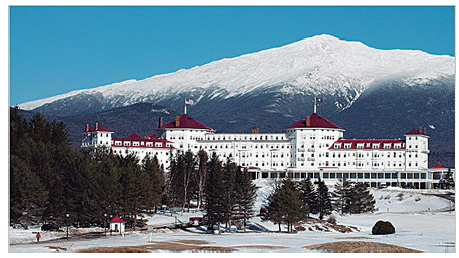Questões de Vestibular de Inglês - Pronome demonstrativo | Demonstrative pronoun
Foram encontradas 30 questões

NOGUEIRA, Salvador. Translated by Marina Della Valle. Disponível em: <
www1folha.uol.com.br/internacional/em/scienceandhealth/2016/03/
1755511-russia-will-install-telescope-in-brazil..shtml>. Acesso em: 27 set.
2016.


(nytimes.com)
Shimmering white and gracefully statuesque, the Mount Washington Hotel is a granite fortress, a manmade anomaly among the raw wilderness of the surrounding White Mountains in remote northern New Hampshire, U.S. Even to this day, the hotel is geographically secured by 800,000 acres of the White Mountain National Forest around it. This was the main reason why the Hotel was chosen for a World War Two meeting – a meeting that shaped present-day global economic policies.
(Linda Laban. www.bbc.com, 26.08.2020. Adapted.)
The term “this”, which introduces the last sentence in the text, refers to the fact that the Mount Washington Hotel
Beyonce, colorism, and why all of this needs to end
by Ernest Owens
Yes, the Super Bowl was on fire. As one who is very critical of halftime show performances, I cannot deny that Beyoncé brought the energy and attention. All of this led to her releasing her tour dates for the Mrs. Carter Show. As excited as I was to actually buy these tickets, something turned me off. The poster.

If you haven’t seen the photographs for Beyonce’s new world tour, you probably wouldn’t even recognize her. You will see an image of what looks like a Victorian white woman in the Elizabethan era. Her (prosthetic) blonde hair puffed and extended to reveal a face that is almost as white as snow. Lips red and her skin powdered. This is not the same bronze Beyonce that I saw rocking the stage in an all female band with her darker Destiny’s Child counterparts. I was only left with memories of previous patterns that the multi-Grammy award winning artist had done in previous years in regards to her skin. And I asked myself the question: why, Bey?
Let’s not act like this is something new. Over the years, it seems as though Beyonce has gotten lighter as she has gotten older. No, this is not genetics and let’s not pretend her skin color in her first Destiny’s Child album cover matches that of her latest album. Whether it is that highly controversial Revlon advertisement or her own album cover art, Beyonce has consistently been called out on alterations done to her pigments.
What does this say about our society for black women? It tells me that, an independent, confident and successful woman of color still struggles to have the confidence to fully embrace the skin she is in. If one of the most powerful women in entertainment feels she has to lighten her skin for projection, what does that say for the rest of us?
Believe it or not, colorism, the stigma associated with skin complexion, has been an ill that has not yet been dissolved by the black community. What was first given to us by slave masters in separating the house slaves from the field ones, has now taken place in how we objectify our women and each other.
This is pretty problematic in many ways. It’s first of all self-loathing and unnecessary for today’s times. The fact that our nation had an African-American first lady with a complexion that isn’t on the lighter side of the spectrum, nor does it try to be, shows a compelling advancement in appreciation for all women of color in many ways.
Furthermore, the only reason why such stigma in our country continues is contributed to our own behavior that is shaped by the influential people of color around us. It devastated me when I saw that Sammy Sosa had lightened his skin. As successful as he was in a field that was not necessarily fixated on male skin complexion, it saddened me to see him do it. In many ways, it even made me reflect back on the transition of the late great Michael Jackson and what explanations he had for such a more pale white appearance.
And why does all of this matter? Because I grew up hearing stories of young dark black girls getting their faces scrubbed with skin lightening soaps out of their free will. Tales of young women being abandoned by their mothers because they were too dark.
If this is the reality that had more implications back in the early 20th century than it does now, please stop it. Stop trying to explain why you are dating the ebony skin girl. Stop making it seem exceptional that a girl of a darker complexion is actually attractive. Celebrities, stop putting extraneous powders and lighteners on your skin: we all know what you used to look like and we still love you. And people of color: let’s not continue to perpetuate an oppressive cycle of self-loathing of our appearance and heritage. If this can be accomplished, then perhaps even in our own race we can truly make our lives not be judged by the color of our skin but by the content of our character.
(adapted from www.huffingtonpost.com, 14/02/2013)